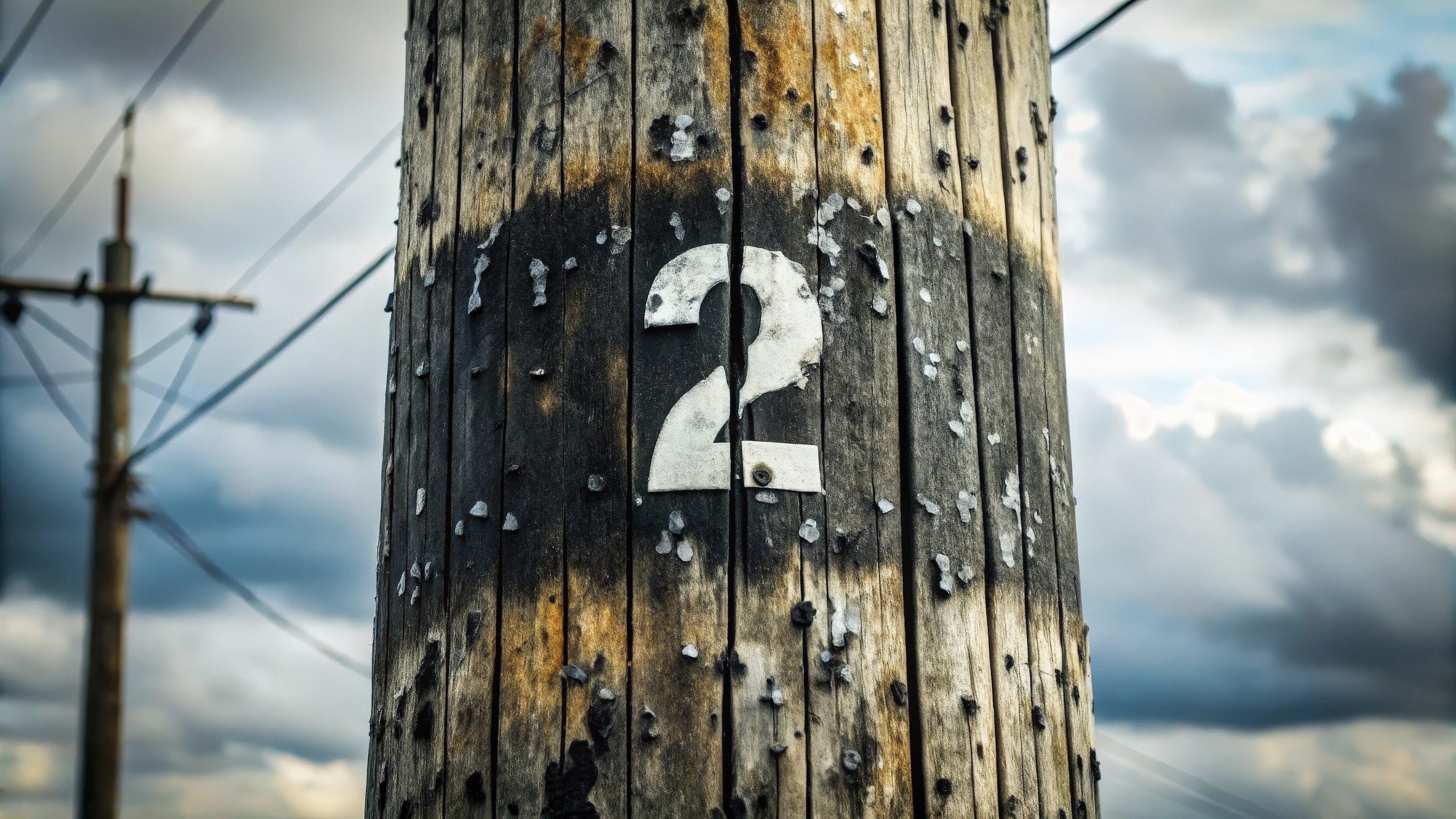Najla Said is an award-winning actress, comedian, and writer. As an actress, she has appeared Off Broadway, regionally and internationally, as well as in film and television. She is a[…]
Sign up for the Smarter Faster newsletter
A weekly newsletter featuring the biggest ideas from the smartest people
Rehearsing for a one-woman show can get lonely and tiring, but once you’ve successfully passed the challenge you feel like you can do anything.
Question: What first drew you to the theater?
Najlarn Said: When I was a kid, I was super-duper shy and I wouldn’t talk rnto anyone and when, but I was, I was very, I like loved playing by rnmyself and I was really imaginative and creative and my parents had thisrn idea that if I did, like, a theater class after school, I would somehowrn open up, and they were right. So I started taking theater classes when Irn was about eight, or seven, and the minute I was put on stage, I rnstarted, I just lit up and I started being comfortable. I think... I rnthink you’ll hear a lot of actors say that they were very shy and for rnme, I felt... having grown up in New York and being rnPalestinian/Lebanese, and having grown up in a pretty homogeneous world rnwith, gone to private school and not understanding what I was, I looked rndifferent and my parents spoke a funny language, I think I found refuge rnin theater because I could be a million different things, and it was rnokay.
Question: Why did you then tell your story as a rnone-woman show?
Najla Said: I think the way it rnevolved was really organic and it came out of a journal entry I had rnwritten. So, what had happened was I had been acting professionally fromrn the time I graduated from college in the late ‘90’s until about, until,rn let’s say, 2001. In 2001, actually, before September 11, a group of rnArab-American artists, myself included, got together because we’d all rnsort of met each other but didn't really know... none of us had really rnexplored our identity and we thought it might be interesting to get rntogether and talk about working on a project about Arab-American rnimmigrants in this country.
So we did and we started working on rnit and then 9-11 happened sort of in the middle of the process. So we rnultimately did the play in the summer of 2002, but to do the production,rn we formed a company. So out of this company grew many things, and one rnof them was some education workshops that we did with kids. And I had rnmet an Israeli filmmaker named Danae Elon, who is the daughter of Amos rnElon, who just passed away... he was an Israeli journalist, an rnintellectual. And she and I, long story short, were working on a projectrn to do in a private high school that... we both knew a student who went rnthere. She wanted to tell about growing up in Israel and I wanted to rntell about being Palestinian. So we decided to each write a piece to rnperform, 15 minutes, for these kids, a personal piece. And there was rnanother member of my theater company who helped us with it and did her rnown piece.
And I didn’t know what to write, so I showed them a rnjournal entry that I’d written when my father passed away. I was rnlistening to my iPod and I heard a song that reminded me of this trip I rntook when I was 18, and I just wrote this stream-of-consciousness thing,rn that turned into a 15-minute performance. And then a few years later, Irn had the opportunity to perform it again at an event for Israeli and rnPalestinian, or Israeli and Arab playwrights, and then I had a working rnrelationship with the New York Theater Workshop and they invited me to rndevelop the piece further. And I kind of had no idea what it was going rnto be. I had dabbled in stand-up a little bit and I’d been an actress rnfor a really long time, but I didn’t understand how this sort of rnmonologue that was just about my weird family, would end up being an rnentire play.
But I took the challenge and I ended up working rnwith a dramator and director who really helped me make it into a play. rnAnd so it never really occurred to me to have other actors in it, it rnjust... and it also, still to this day, doesn’t totally feel like a rnplay. It’s a piece that I’ve done where I get to show off all my rndifferent characterizations and abilities, but it’s purely my story.
Sorn it’s funny because I had dabbled in stand-up, but I didn’t get how to rnwrite a joke. I just could... just stand on stage and babble, so this rnwas the perfect way for me to put all that in and still be an actress.
Question:rn What are the challenges of a one-person show?
Najla Said:rn It’s lonely, you know, you find that a lot of us who do theater, the rnreason we do it is because it’s all about interaction with other people rnon stage and with the audience, it’s a very visceral thing, whereas whenrn you’re shooting a film, you shoot scenes out of sequence and sometimes rnthere’s no one else there, you know, if you’re working with some big rnmovie star, they’re not necessarily going to be sitting across from you,rn you may just be talking to a camera. So a lot of the love of theater isrn because of the human and personal interaction. But what I found was, rnalthough it’s lonely, it’s incredibly, I mean, once you realize that rnyou’re on stage and, I mean, first, it’s horrifying, you realize, “Oh, rnmy God, if I mess up, there’s no one here to save me,” but then you alsorn realize, “Everyone’s listening to me,” which, without sounding like a rntotal egomaniac, that’s not what I mean, it’s just, it’s lovely, becausern it really gives the story an opportunity to be heard. There’s nothing rnelse that people can focus on or listen to.
And then the rnconnection with the audience becomes a little more intense, which is rnlovely. Because in both of these situations, and it’s not always the rncase, but, in general, I was talking to the audience. So, of course, rnthat brings out the whole other level of difficulties because you’re notrn used, you know, in theater you tend to have a, what’s called the fourthrn wall, but it’s kind of nice, too, because you’re really talking to rnpeople.
So I find that it can get lonely and tiring to go to rnrehearsal for eight hours a day and it’s all you all the time, is tiringrn and it really brings out a lot of insecurities because you’re the only rnone getting notes and you’re also... and for this experience I was also rnthe writer, so it was just a lot. But it’s also a challenge and it’s a rntotal thrill and once you’ve done it, you’re like, “Whoa! I can do rnanything.” You’re not, sort of the fear of being on stage, if you ever rnhad, like, I’m not really, I don’t get stage fright, but I do get rnnervous, like most people, so the idea that, I’ve done this now twice rnfor an hour-and-a-half, both times, I mean, both productions and gotten rnthrough a full run, you just sort of feel like, “I can do anything rnnow!”
Najlarn Said: When I was a kid, I was super-duper shy and I wouldn’t talk rnto anyone and when, but I was, I was very, I like loved playing by rnmyself and I was really imaginative and creative and my parents had thisrn idea that if I did, like, a theater class after school, I would somehowrn open up, and they were right. So I started taking theater classes when Irn was about eight, or seven, and the minute I was put on stage, I rnstarted, I just lit up and I started being comfortable. I think... I rnthink you’ll hear a lot of actors say that they were very shy and for rnme, I felt... having grown up in New York and being rnPalestinian/Lebanese, and having grown up in a pretty homogeneous world rnwith, gone to private school and not understanding what I was, I looked rndifferent and my parents spoke a funny language, I think I found refuge rnin theater because I could be a million different things, and it was rnokay.
Question: Why did you then tell your story as a rnone-woman show?
Najla Said: I think the way it rnevolved was really organic and it came out of a journal entry I had rnwritten. So, what had happened was I had been acting professionally fromrn the time I graduated from college in the late ‘90’s until about, until,rn let’s say, 2001. In 2001, actually, before September 11, a group of rnArab-American artists, myself included, got together because we’d all rnsort of met each other but didn't really know... none of us had really rnexplored our identity and we thought it might be interesting to get rntogether and talk about working on a project about Arab-American rnimmigrants in this country.
So we did and we started working on rnit and then 9-11 happened sort of in the middle of the process. So we rnultimately did the play in the summer of 2002, but to do the production,rn we formed a company. So out of this company grew many things, and one rnof them was some education workshops that we did with kids. And I had rnmet an Israeli filmmaker named Danae Elon, who is the daughter of Amos rnElon, who just passed away... he was an Israeli journalist, an rnintellectual. And she and I, long story short, were working on a projectrn to do in a private high school that... we both knew a student who went rnthere. She wanted to tell about growing up in Israel and I wanted to rntell about being Palestinian. So we decided to each write a piece to rnperform, 15 minutes, for these kids, a personal piece. And there was rnanother member of my theater company who helped us with it and did her rnown piece.
And I didn’t know what to write, so I showed them a rnjournal entry that I’d written when my father passed away. I was rnlistening to my iPod and I heard a song that reminded me of this trip I rntook when I was 18, and I just wrote this stream-of-consciousness thing,rn that turned into a 15-minute performance. And then a few years later, Irn had the opportunity to perform it again at an event for Israeli and rnPalestinian, or Israeli and Arab playwrights, and then I had a working rnrelationship with the New York Theater Workshop and they invited me to rndevelop the piece further. And I kind of had no idea what it was going rnto be. I had dabbled in stand-up a little bit and I’d been an actress rnfor a really long time, but I didn’t understand how this sort of rnmonologue that was just about my weird family, would end up being an rnentire play.
But I took the challenge and I ended up working rnwith a dramator and director who really helped me make it into a play. rnAnd so it never really occurred to me to have other actors in it, it rnjust... and it also, still to this day, doesn’t totally feel like a rnplay. It’s a piece that I’ve done where I get to show off all my rndifferent characterizations and abilities, but it’s purely my story.
Sorn it’s funny because I had dabbled in stand-up, but I didn’t get how to rnwrite a joke. I just could... just stand on stage and babble, so this rnwas the perfect way for me to put all that in and still be an actress.
Question:rn What are the challenges of a one-person show?
Najla Said:rn It’s lonely, you know, you find that a lot of us who do theater, the rnreason we do it is because it’s all about interaction with other people rnon stage and with the audience, it’s a very visceral thing, whereas whenrn you’re shooting a film, you shoot scenes out of sequence and sometimes rnthere’s no one else there, you know, if you’re working with some big rnmovie star, they’re not necessarily going to be sitting across from you,rn you may just be talking to a camera. So a lot of the love of theater isrn because of the human and personal interaction. But what I found was, rnalthough it’s lonely, it’s incredibly, I mean, once you realize that rnyou’re on stage and, I mean, first, it’s horrifying, you realize, “Oh, rnmy God, if I mess up, there’s no one here to save me,” but then you alsorn realize, “Everyone’s listening to me,” which, without sounding like a rntotal egomaniac, that’s not what I mean, it’s just, it’s lovely, becausern it really gives the story an opportunity to be heard. There’s nothing rnelse that people can focus on or listen to.
And then the rnconnection with the audience becomes a little more intense, which is rnlovely. Because in both of these situations, and it’s not always the rncase, but, in general, I was talking to the audience. So, of course, rnthat brings out the whole other level of difficulties because you’re notrn used, you know, in theater you tend to have a, what’s called the fourthrn wall, but it’s kind of nice, too, because you’re really talking to rnpeople.
So I find that it can get lonely and tiring to go to rnrehearsal for eight hours a day and it’s all you all the time, is tiringrn and it really brings out a lot of insecurities because you’re the only rnone getting notes and you’re also... and for this experience I was also rnthe writer, so it was just a lot. But it’s also a challenge and it’s a rntotal thrill and once you’ve done it, you’re like, “Whoa! I can do rnanything.” You’re not, sort of the fear of being on stage, if you ever rnhad, like, I’m not really, I don’t get stage fright, but I do get rnnervous, like most people, so the idea that, I’ve done this now twice rnfor an hour-and-a-half, both times, I mean, both productions and gotten rnthrough a full run, you just sort of feel like, “I can do anything rnnow!”
Recorded on May 11, 2010
Interviewed by Austin Allen
Interviewed by Austin Allen
▸
46 min
—
with





